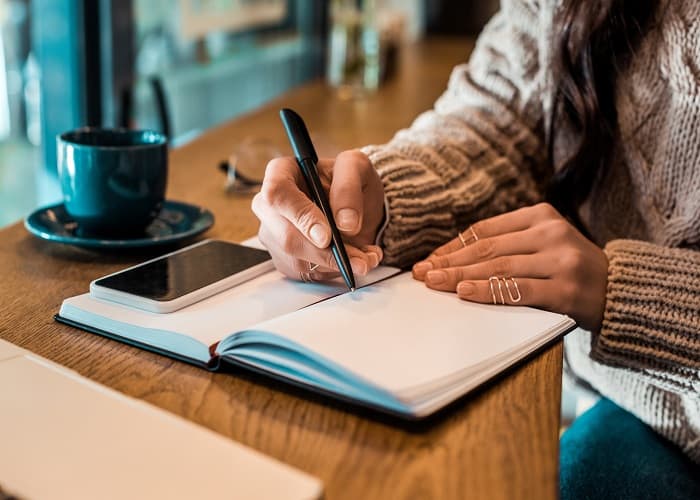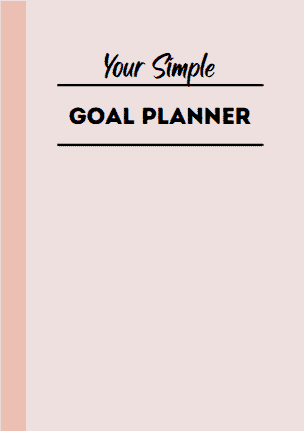
Article at a Glance The article highlights the benefits of using a daily planner for personal and professional life. It explains why a planner is an important tool for organization, accountability, record keeping, and reducing stress. The process of starting a planner is also discussed and tips are provided on how to set it up and begin using it effectively. The benefits of using a planner are numerous, including increased productivity, reduced stress and mental clutter, and improved health and wellness. Whether you choose a bound formal planner or an electronic one, the article encourages people to start using a planner to help them manage their daily life effectively.
There are almost as many daily planners available as there are people to use them. Whether you decide to purchase a formal planner with bound pages, create your own with printed pages, or keep an electronic planner, there are several benefits to using it.
This can apply to your personal and professional worlds to help you become more productive and feel more confident in your efficiency and effectiveness.
Using a planner daily can help you (and your family) remain prepared and organized while reducing chaos and stress in your daily life.
This is especially important as our days continue to be filled with extra activities, school or work assignments, and other distractions—all of which can be difficult to manage without a structure or system in place to keep track of everything.
Read on to find out how using a planner will benefit you!
Check out the goal planner below!
Why Use a Planner?
Most people understand the value of a planner as a tool for keeping track of schedules, events, appointments, dates, and so on.
However, it can be difficult for some to justify using a planner, particularly if they feel their schedule is not busy enough to require one or they have a good enough memory to keep track of everything.
What throws other people off track is how to start using a planner, especially if they feel inexperienced or think they need to wait for the start of the new year or first day of the next month.
The good news is that there is no reason to wait, because the way to start using a planner is to start using it—no matter what day it is. In a short time, you will understand the benefits of using a planner no matter how complex or simple your lifestyle and daily routine are.
If you are wondering how to set up a planner in order to begin, the process is simple.
Rather than trying to fill each slot or day with something, begin by making note of known and/or solid activities that will take place during the current week.
Then you can add other items to build around the knowns in your schedule.
Don’t feel as if you have to plan your days to the hour or minute. As you get a sense of what is a must-do on your daily schedule, you will develop methods for scheduling what you want to do as well.
Soon, you will reap these seven benefits of using a planner, and more!

1. Organization
The primary reason that people use a daily planner is for organization.
This is also one of the greatest benefits of daily planner use.
Organization is an important life skill in personal and professional settings. It enhances the way we function, increases our productivity, reduces mental and physical clutter, and improves our health and wellness.
By keeping a daily planner, it allows you to keep track of essential information and events. This eliminates the need to rely on your memory or chance reminders.
As a result, this organization allows you to plan effectively for the next day and as far into the future as you wish.
A daily planner is an intrinsic and instinctual method for organization.
Rather than jotting down information on separate notes or creating lists on various pieces of paper or even your phone, taking the time to organize everything in a daily planner will reduce the risk of losing or forgetting something important.
The more physical and mental clutter we try to hold on to, the more chaos and stress we feel—internally and externally.
This can have a draining effect on our ability to concentrate, remember things, and accomplish what we need to do.
Using a planner to reduce this clutter and maintain organization of information and schedules can restore our confidence, focus, and effectiveness in managing our daily lives.
2. Accountability
Keeping a planner creates a psychological sense of accountability.
When we write something down, or type something into a schedule, it becomes much more tangible in our minds. As a result, we are more likely to remember it and do whatever is necessary to “cross it off.”
This increases our accountability to ourselves as well as what we have noted in our planner.
In addition, by noting tasks, appointments, important dates, goals, etc., in a planner, there is a transparency in terms of our intentions and what we must and/or hope to accomplish.
This transparency creates a sense of accountability as well in that it is much more rewarding to check off a completed task or event than it is to have it remain an unfulfilled or incomplete reminder in our planner.
3. Record Keeping
Whether you are using a planner for yourself or for your entire family, it is an excellent form of record keeping.
Not only will your daily planner help you keep track of upcoming tasks and events, but it is a record of what has already happened and what you have already done—and when.
This is especially beneficial in terms of healthcare such as dental check-ups, medical tests, and even prescription refills.
Your planner may come in handy as a record keeper as well for birthdays, holidays, school events, and more.
Rather than trying to keep all that information in your mind, you can rest assured that it is available in your planner when you need it.
4. Reduced Stress
Most people feel busier than ever, and though we have devices for setting alarms and reminders, that can create additional stress to our already intense (and noisy) lifestyles.
Using a planner is an effective method for reducing stress. Of course, the organization it provides for keeping information and daily scheduling can relieve your stress in knowing that you can refer to your planner rather than trying to keep everything in your mind and risk missing something important.
In addition, the act of filling out your planner can also reduce your stress by giving you a sense of control over your schedule and an understanding of what to expect each day and each week.
Of course, using a daily planner won’t eliminate your stress altogether. However, it will alleviate potential worry in your mind about forgetting an essential appointment, date, or task.
This can go a long way in reducing your internal stress as well as the external stress of consequences for important things that go overlooked.

5. Goal Setting and Progress
Another benefit of using a planner besides getting organized is to keep track of your short-term and long-term goals and their progress.
Experts in goal-planning agree that to be successful in achieving any goal, there must be measurable and intentional steps that build up towards the overall objective.
Using a planner daily can help keep your goals in mind while motivating you to accomplish the smaller steps towards achieving them.
For example, a yearly planner provides the opportunity to set long-term goals to be accomplished across twelve months, as well as short-term goals to be accomplished monthly, weekly, or even daily.
By keeping track of each successful step that you have taken in your planner, you can view your progress in reaching your goals.
6. Time Management
Very few people would claim to have perfect or even superior time management skills.
This is especially true in our current world due to the continuous presence of distractions. For example, you may decide to check your social media for just a moment and then an hour may pass.
A daily planner may not keep away all distractions, but it can definitely enhance and improve your time management skills.
Creating a basic schedule for each day and a general schedule for each week allows planner users to develop a rough image of the time they will be occupied and the time they have left over.
This will, in turn, provide a sense of time being managed through routine and lessen the feeling of being out of control of how the day passes.
Of course, unexpected complications may arise and it’s unrealistic to think that each minute or hour of the day or week can be managed, designated, or responsibly filled.
Instead, a planner can help you establish daily or weekly routines to use your time more effectively.
7. Focus and Feeling Mindful
Creating a daily, weekly, or even monthly schedule allows you to focus on what tasks and commitments are necessary.
This encourages a feeling of productivity and mindfulness in the time you spend fulfilling those tasks and commitments, which is beneficial so that your actions are attentive and purposeful.
This can have a calming effect on your daily life so that you don’t feel as rushed or hectic.
In addition, as your planner helps you focus and feel mindful in terms of what must be done, it can also help you focus and feel mindful during your “free” intervals as well.
Many people honestly feel that they don’t have time for activities that would enhance their quality of life such as walking, reading, relaxing, or pursuing a hobby.
By utilizing your planner and improving your focus and mindfulness, you will realize that there is room in your schedule for activities to increase your happiness and well-being, even if it’s just a few minutes each day.
This will create a self-rewarding cycle of being able to focus on happy pursuits and feeling mindful while you do so.

Additional Tips for Using a Planner
There are so many tips for how to keep a daily planner. The most important tip for using a planner is to figure out what system works for you.
You may find that taking time each evening to plan the schedule for the next day is most valuable, or you may decide that planning out the entire week on Sundays is a better solution.
In addition to how you will use your daily planner, it’s important to consider what to include each day so that you don’t feel overwhelmed but have a solid system of organization.
For example, you may decide to plan daily meals for the week so that you don’t have to make any last-minute shopping trips or food decisions.
If, however, this feels too rigid and you prefer to be more spontaneous, you may leave meal planning out of the schedule altogether.
Allow yourself to figure out what works best for using your planner, and you may need a different approach each week.
Here are two additional tips for using a planner that can apply to everyone:
Avoid Perfectionism
Having a brand-new planner often feels exciting, like a fresh start.
Most of us have an idealized image of using it and how each page will look, whether it’s a mental picture of neatly writing in it each evening or color-coding different tasks with special highlighters.
Unfortunately, these expectations of keeping a “perfect” planner are unrealistic and counterproductive.
What makes a good planner is not pages with tidy written schedules in each daily square or one that looks as pristine as the day it was purchased.
Instead, a good planner is meant to be used in whatever way is most effective. The aesthetics don’t matter, and neither does perfectly checking off each daily task.
Your planner isn’t meant to look perfect, just as you are not meant to be perfect. So, put your energy into making your planner work for you without any expectations of perfectionism.
Avoid Security Risks
Though it may be tempting to write personally identifiable information in your paper planner to keep everything in one place, it’s important to realize that this poses a security risk.
Keeping information such as usernames, passwords, PINs, addresses and phone numbers, etc., in your planner may compromise your personal data if it were ever to get lost or stolen.
Even if there is a page designated in the front or back of your planner for this information, it’s better to leave it blank to maintain your personal privacy and security.
You may also be interested in: 1. How to Manifest Something by Writing It Down 2. How to Start a Manifesting Journal 3. This is How to Manifest What You Want in Life 4. Guided Meditation For Anger 5. Embrace Personal Growth





